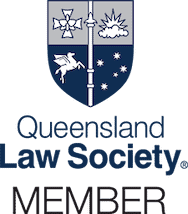Case note: Waugh v Simon Blackwood (Workers’ Compensation Regulator) & State of Queensland [2015] ICQ 028
The Facts
Ms Astrid Waugh (Appellant) brought a claim for workers’ compensation for psychiatric injuries arising in the course of her employment with the State Library of Queensland (SLQ).
The Appellant’s co-worker, Mr Bruce McGregor (McGregor), took covert photographs of the Appellant and a number of other people, using SLQ electronic devices. The equipment was confiscated from McGregor and 2,500 images were found on the confiscated devices. A number of the images focused on the chest area of female employees of the SLQ.
The Appellant only became aware of the photographs in March 2013, after hearing rumours about McGregor’s actions. The Appellant approached a work colleague, who followed up with management about her concerns. The Appellant asked to see the images after a meeting with management on 2 May 2013. The Appellant said she was told that the images would be provided. A week later, the Appellant says that she was told, ‘Oh Astrid, your head is not even in most of them’.
The images were posted to the Appellant on 17 May 2013. This was after the SLQ undertook a consultation process, which included obtaining legal advice. The Appellant complained that management had ‘brushed her off’.
The Proceedings
The Appellant suffered a psychiatric injury. She made successful application to WorkCover Queensland for workers’ compensation benefits. The SLQ appealed the decision to accept the claim. The Workers’ Compensation Regulator upheld the SLQ’s appeal. The Appellant appealed to the Queensland Industrial Relations Commission (Commission). The Commission refused her appeal.
The Appellant appealed to the Industrial Court of Queensland (Court).
Her appeal challenged these findings of the Commission:
- That the injury did not arise out of, or in the course of, the Appellant’s employment as ‘the workplace was merely the background or setting in which the inappropriate behaviour took place’.
- The significant contributing factor to the injury was the taking of the photographs and not the Appellant’s employment.
- The manner in which the SLQ dealt with the issue was reasonable management action taken in a reasonable way.
The Judgment
In a judgment delivered on 8 October 2015, President Justice Martin allowed the appeal, finding:
- There was a delay in advising the Appellant of the existence of the photographs. That delay had some effect upon the Appellant.
- The fact that the photographs were taken in the workplace was integral to the development of the psychiatric injury. This was supported by unchallenged psychiatric evidence. This was a case in which the employment was more than just the setting in which the inappropriate behaviour took place. The effect of the behaviour and the intensity of the impact it had was magnified by the fact that it occurred in the workplace.
- The actions of the SLQ fell short of ‘reasonable management action’.
Considerations
The Court acknowledged that the circumstances of this case would test the best intentioned employer. However, it also highlighted some shortcomings of the SLQ, which the Court found were not dealt with by the Commission, including:
- The delay in advising the Appellant of the photographs and the nature of the photographs.
- The fact that the SLQ did not say anything to the Appellant until she approached another employee about the matter.
- The lack of any disciplinary action or sanction on McGregor.
- Allowing McGregor to resign.
- The tone of correspondence advising staff of McGregor’s resignation, which could be reasonably seen to be, if not supporting McGregor, a benign acceptance of his conduct.
- Failing to report the incident to a relevant authority.
It’s easy to imagine similar criticisms being made of an employer in say, a bullying case. This case will be of interest to those working in management, employment law or human resources. It highlights the fragility of these situations and the need for businesses to be aware of what could fall short of ‘reasonable management action’ in a workers’ compensation claim.
Can we help?
This article is not legal advice. For advice regarding a workers’ compensation claim, book an appointment by calling us on (07) 3067 3025.
If you found this article helpful, you may be interested in reading, Making a Workers’ Compensation Claim for a Psychological Injury.





